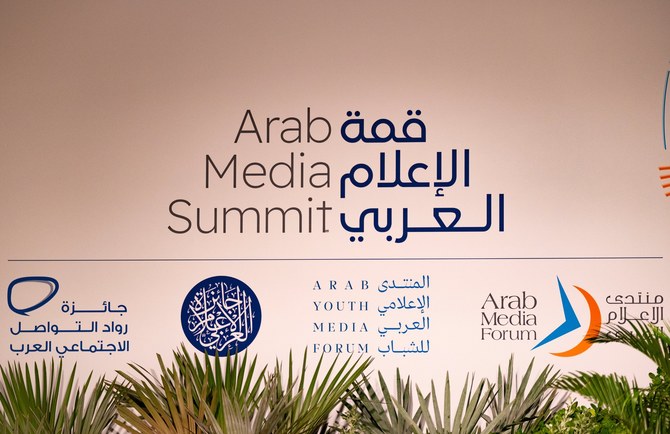DUBAI: The annual Arab Media Forum launched in Dubai on Monday for a three-day summit involving media leaders and executives from across the region.
This year’s forum is geared toward youth, focusing on arming the next generation of journalists and media professionals with the tools and know-how to thrive in the ever-growing industry in the Arab world.
For the past two decades, the forum has brought together regional and international speakers to discuss the industry’s challenges and impact on Arab societies.
More than 1,000 creative and media students are expected to attend, along with prominent Arab personalities, content creators and global media industry leaders taking part in a range of panel discussions and master classes.
Notable speakers include Sheikh Nasser bin Hamad Al-Khalifa, the king’s representative for humanitarian work and youth affairs in Bahrain; and Dr. Sultan Al-Neyadi, the UAE’s minister of state for youth affairs.
Monday’s schedule includes master classes on Meta, tools for storytelling, interactive media, as well as building personal brands.
Panels and discussions on the opening day cover sports media, the art of directing and redefining storytelling.
Tuesday and Wednesday will feature discussions on key political, economic and technological developments by media personalities, editors in chief, writers and experts from the region and around the world.
The forum will close with an awards ceremony recognizing content creators and journalists in a range of categories.














